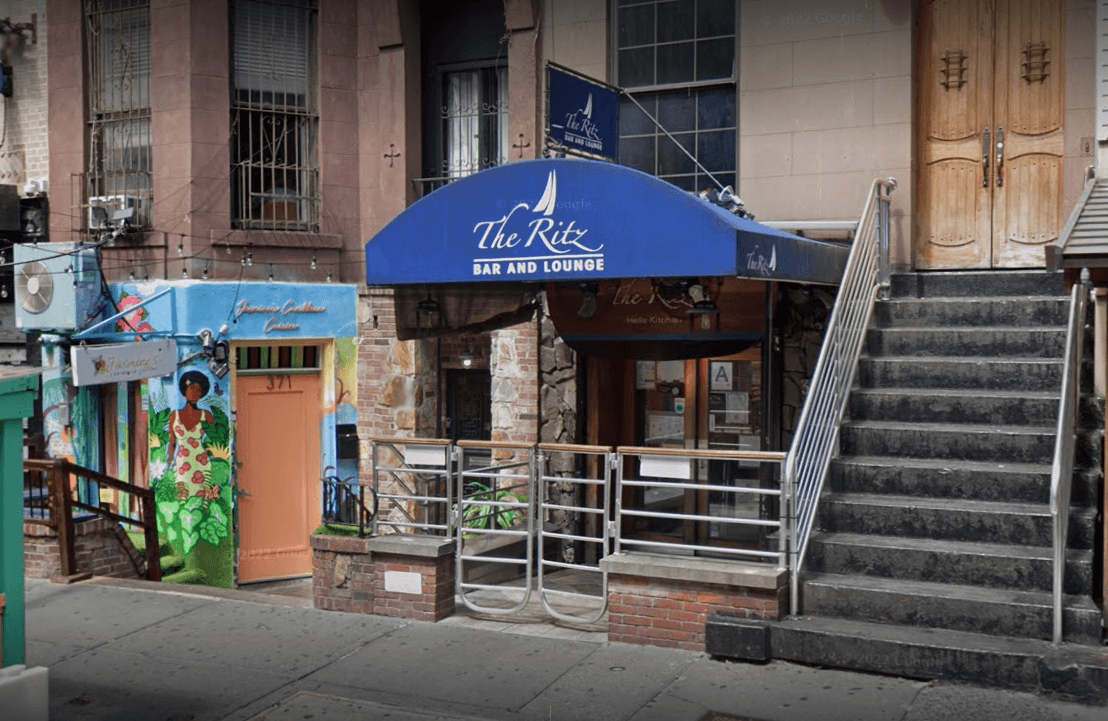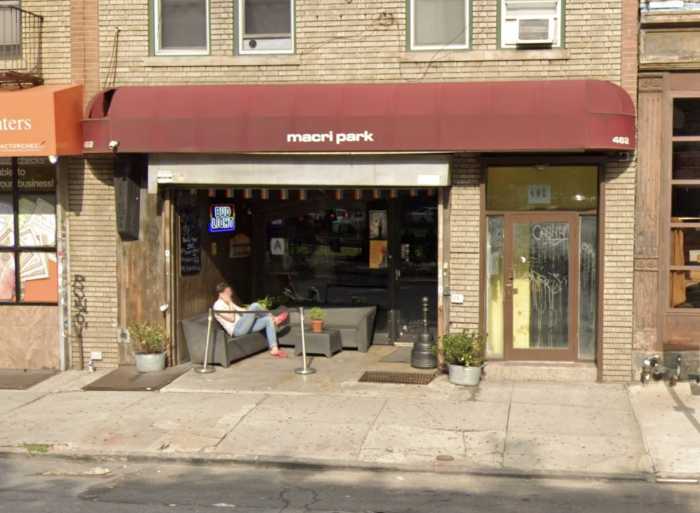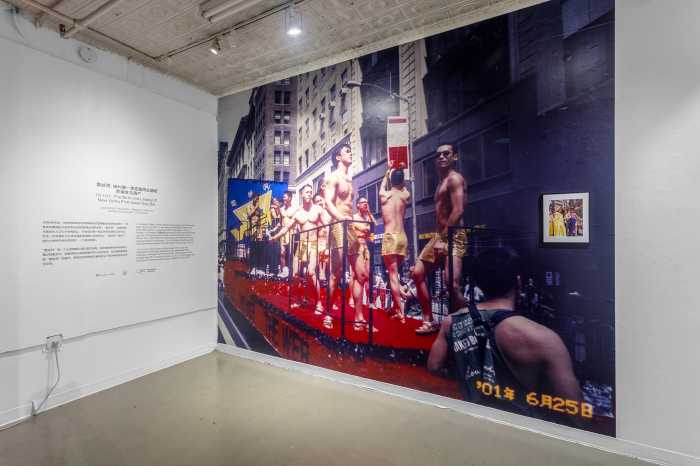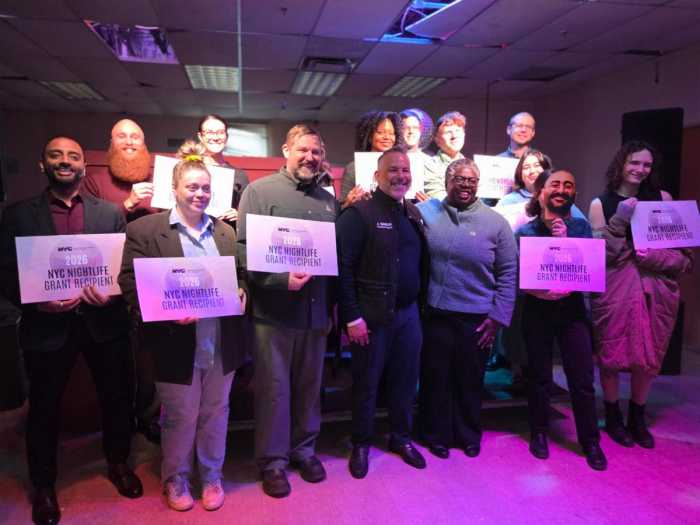It is perhaps cliche to lament the ever-changing — and often declining — state of queer nightlife across America. That decline is, after all, hard to ignore: Greggor Mattson, professor and chair of sociology at Oberlin College and Conservatory, released a report in 2023 outlining a whopping 45% decrease in queer bars from 2002 to 2023. This trend has multiple causes, including the growing use of dating apps like Grindr and Sniffies, increased social acceptance of LGBTQ people, and financial challenges businesses faced after the COVID-19 pandemic.
But New York, as it often does, has managed to avoid this trend — or, at least, the city has held it off. Mattson’s analysis of bar listings found that while gays bars were disappearing across the country, the city actually saw an uptick from 1997 to 2017 — including now-famed haunts like Metropolitan in Williamsburg (2002), The Ritz in Hell’s Kitchen (2006), and Icon in Astoria (2014), according to Bloomberg, which noted in 2022 that in recent years, more than a quarter of the city’s queer bars closed — a steady shrinking of the scene both before and after the height of the pandemic. Notable losses include Therapy, The Spot, Vodka Soda, and, most recently, Chelsea’s iconic Barracuda Bar.
It’s hard to pin down why some bars last and others don’t. There are obvious standouts — the Stonewall Inn and Julius’ both have storied histories and are city landmarks on the National Register of Historic Places. Others, like the East Village’s the Cock and Boiler Room, have survived on simply changing locales over the years. Outliers like Suite, which is uptown by Columbia University, and Toolbox, which is on the Upper East Side, have secured their keep by doubling as neighborhood haunts. Then there are the ones seemingly doomed from the start, like Hell’s Kitchen’s Q Bar, which started strong when it opened in 2021 before being bogged down with accusations of racism, sexism, and discrimination, and underage drinking. It closed down less than two years later.
Here’s the thing: the 14 bars mentioned above barely scratch the surface of New York’s vibrant, ever-fluctuating queer scene. And, just in time for Pride, two of Manhattan’s infamous gay bars — the Ritz and g Lounge – have a new lease on nightlife.
g Lounge Reborn
Longtime New Yorkers will remember g Lounge (originally known simply as “g”) opening in 1996 under the management of Michael McGrail. With a background in hospitality, McGrail wanted to open a new kind of gay bar in 1990’s-era Chelsea. g Lounge was originally envisioned as a high-end cocktail lounge, complete with a mix of traditional cocktail tables and more casual ottomans — all revolving around the bar’s soon-to-be iconic “g” shaped circular bar in the middle of the space. While most gay bars were dimly lit at the time, g Lounge featured a large archway that brought in natural light and could be opened in warm weather. The owners described it as a safe space where “people found community.”
McGrail, along with his business partners, ran g Lounge for 20 years before the bar closed in 2016. Chelsea had numerous changes over the course of the two decades since g Lounge first opened: Queer spaces like Splash and The Blue Store shuttered and the party was moving uptown to Hell’s Kitchen. But McGrail wasn’t giving up without a fight.
Aware of the shifting gayborhood, the space was reimagined as Rebar. McGrail stayed at the helm, along with some new and some old partners who traded in the predecessor’s lounge vibes for a more industrial look and feel. This new direction served McGrail and team well for seven years; Rebar survived COVID, offering a mix of old and new programming, including weekly drink-n-draw nights and shadow sex shows.
Towards the end of 2024 though, rumors of Rebar’s closing began to spread. While nothing came of those whispers, Rebar announced at the end of May that it would be closing. What followers and patrons weren’t expecting was that they would be re-opening a week later under the “g Lounge” moniker. McGrail’s husband, along with another business partner, bought out the McGrail’s previous partners, leading to g Lounge’s rebirth.
The announcement has been met with excitement, with fans of the old establishment sharing fond memories in-person and online, recounting the old space’s inviting ambiance and strong, strong drinks. Speaking to a g Lounge bartender a week after the opening, response to the rebrand continues to be positive, citing that patrons have a real love for g Lounge.
Does g Lounge mark a new chapter for Chelsea’s gay scene? Maybe. As one patron on opening night mused, “Does that mean Splash is coming back?”
Ritz and Glamour
While McGrail has been working for nearly 30 years to keep g Lounge going strong, it isn’t the only gay bar staging a return in Manhattan. The Ritz, the gay dance club on Restaurant Row in Hell’s Kitchen, also recently announced new ownership. Eric Hanninen, another hospitality entrepreneur, purchased the bar in February. Hanninen is no stranger to the neighborhood: he’s been a frequent patron of the bar since 2014 and even briefly worked there part time. He plans on being hands-on, too, having acquired one of the apartments above the bar as part of the deal.
After some renovations, the Ritz had its official grand opening on May 17th. The opening was attended by out gay City Councilmember Erik Bottcher of District 3, along with “Drag Race” alum and local drag queen/activist Brita Filter. Speaking at the ribbon cutting, Brita said that the Ritz was “where I saw my first drag show… where I learned what my queer culture was… and where I learned how to fight back,” referring to the rise in anti-LGBTQ+ legislation and rhetoric across the country. Brita’s opening comments went on to say that the Ritz’s reopening, especially under queer ownership, was both beautiful and necessary.
Prior to its new ownership, the Ritz had been struggling, barely rebounding from the COVID-19 pandemic before finding itself associated with the death of Julio Ramirez, a 25-year-old gay social worker who was murdered by Jayqwan Hamilton, Robert DeMaio, and Jacob Barroso in April 2022. Ramirez was last seen getting in a taxi after leaving the bar, where he was later robbed and fatally drugged.
What makes some queer bars survive while others close? Is it enduring grit like Michael McGrail showed at g Lounge, or fresh energy like Eric Hanninen brought to the Ritz? Or is it actually about adaptability and listening to community needs? The answer may be impossible to pin down, but one thing is clear: queer spaces in New York aren’t dying — they’re evolving. That evolution can feel scary, but it’s necessary for these spaces to not just survive but thrive. And they are needed now more than ever.



































